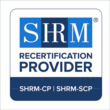2025 Payroll Tax Compliance: Multi State Challenges

Credits
About this Webinar
It has become critical for employers to understanding how to calculate tax for employees in 2 or more states. Managing multi-state payroll processing requires a thorough understanding of complex regulations and tax requirements across various jurisdictions.
Businesses with employees in multiple states must navigate the nuances of multistate payroll to ensure accurate wage calculations, tax withholdings, and compliance with state-specific labor laws. This webinar will give the participant a better understanding of the laws in each state and the tax guidance on how to determine taxation when employees live in one state and work in another. Plus for employees that work in multiple states that travel for work how should employers handle them.
This webinar will be tailored to employers that have a large amount of employees that may telecommute across state borders and how employers can manage the tax liability for those employees. Especially when these employees perform work in multiple states. How the remote work environment has changed the multi state payroll concerns? To avoid costly penalties and maintain legal compliance, HR professionals and payroll specialists often invest in payroll law training, which equips them with the knowledge needed to handle state-by-state differences confidently and efficiently.
Session Highlights
- Legal definition of Residency
- Reciprocity Agreements what are they and how they affect the tax calculation
- Resident/Non-Resident Withholding Rules
- Evaluating taxation for multiple states
- What wages are subject to taxation in the states?
- Withholding compliance issues
- Courtesy Taxation
- State Unemployment Insurance
- Traveling Employees
- Administrative Concerns
- HR Concerns
- Local tax residency rules
- Case Studies?
Why You Should Attend
Managing payroll and tax compliance for employees across multiple states can be complex, especially with issues like telecommuting, which can create tax liabilities for employers when remote workers trigger tax nexus in multiple jurisdictions. Understanding each state’s definition of residency is crucial, as it influences where taxes are owed, while reciprocity agreements between states can help avoid double taxation for employees working across state lines. Employers must also navigate resident and non-resident withholding rules to ensure correct tax deductions based on the employee’s home state and where work is performed. Evaluating employee withholding taxation involves understanding how state tax rules apply to wages earned in multiple locations, including how wages subject to state taxation can vary by jurisdiction. Additionally, compliance with State tax forms, unemployment insurance, and local taxes can complicate matters, especially for traveling employees who may work in several states. Employers must stay on top of administrative and HR concerns, ensuring proper tracking of employee work locations and withholding, while also adhering to local tax residency rules. Lastly, reviewing case studies and examples of how other businesses handle multi state taxation can provide valuable insights into effectively managing these challenges and ensuring compliance across all states involved.
Who Should Attend
- Payroll Professionals
- Human Resources
- Accounting Personnel
- Owners
- Employee Benefit Professionals
- Lawmakers
- CFO’s
- Attorneys who are Dealing with Payroll Process
Speaker(s)
Dayna is currently the Director of Payroll Operations at Ann & Robert Lurie Children’s Hospital of Chicago. Dayna has been heavily involved in the payroll field over 17 years. Starting as a payroll clerk at a small Tucson company, Dayna moved on to be a Payroll Team Leader at Honeywell Inc. During Dayna’s time at Honeywell she obtained her FPC (Fundamental Payroll Certification) through the American Payroll Association. She also received several merit awards for Customer Service and Acquisitions and Divestitures. Dayna is no stranger to teaching she has taught at the Metro Phoenix American Payroll Association meetings and at the Arizona State Payroll Conference.
Topics including Payroll Basics, Global/Cultural Awareness, Immigration Basics for the Payroll Professional, Multi-State and Local Taxation and Quality Control for Payroll, International and Canadian payroll. Dayna has her CPP (Certified Payroll Professional) through the APA. She also serves on the National American Payroll Association on the National Strategic Leadership Task Force, Government Affairs Task Force (PA Local tax subcommittee). Dayna has received a Citation of Merit for her service along with being a Gold Pin member of the APA. Besides her payroll accomplishments Dayna is certified in HR hiring and firing practices and is a Six-Sigma Greenbelt.
CEUs
The use of this seal confirms that this activity has met HR Certification Institute’s® (HRCI®) criteria for recertification credit pre-approval.
Credits: 1.5

Course Ministry is recognized by SHRM to offer Professional Development Credits (PDCs) for the SHRM-CPSM or SHRM-SCPSM. This program is valid for PDC(s) for the SHRM-CP or SHRM-SCP. For more information about certification or recertification, please visit www.shrmcertification.org
Credits: 1.5

Course Ministry is registered with the National Association of State Boards of Accountancy (NASBA) as a sponsor of continuing professional education on the National Registry of CPE Sponsors.
Credits: 1.5
Unlimited Webinars
Why You Should Subscribe to Our Unlimited Webinar?

Unlimited Live and On-Demand Courses
Watch all live or recorded webinars (up to 120 minutes long). Get instant access to a library of more than 500 high quality courses presented by best-in-class presenters.

CEUs: CPE, SHRM and HRCI Credits
Fulfil your recertification requirements by earning CEUs from CPE, SHRM and HRCI.

Free Access to Course Materials
Each program comes with Additional Course Materials, which you can download and read anytime.

Additional Discounts
Get flat 20% discount on Premium Product Category like, Long Hour Webinars.
SUBSCRIBE NOW